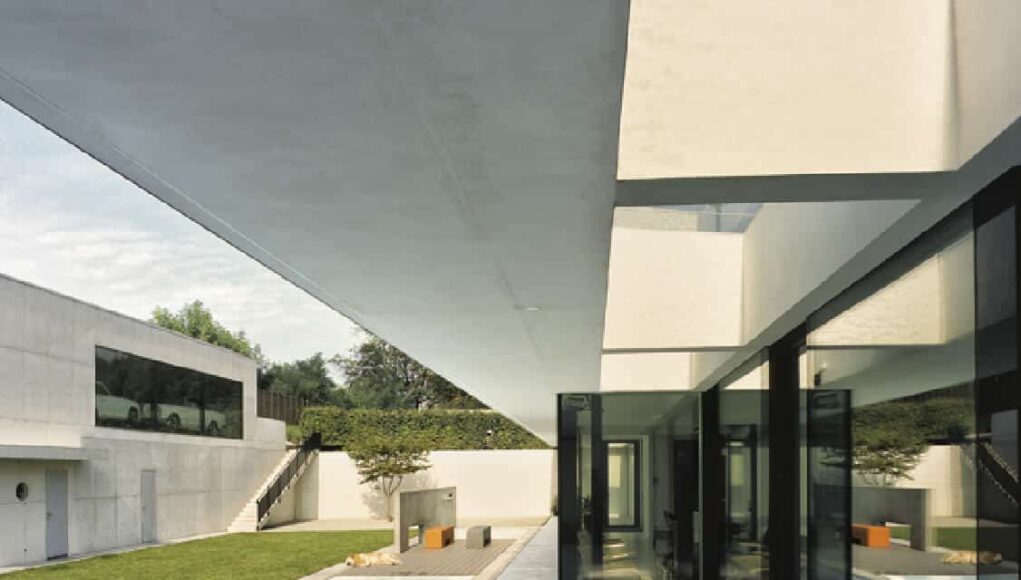Noise-reducing glazing has become significantly more effective at cancelling noise as a result of improvements in manufacturing techniques, and it has also become significantly more cost-effective than you might imagine, which has made it possible to significantly reduce the amount of noise that comes in through windows.
This kind of speciality glazing system, which is also often referred to as acoustic glass or noise cancelling windows, is used in pre-fitted systems and may also be put in window frames that are already in place. A glass that is considered to be “normal” is one of the most effective barriers against wind and rain, but it offers very little protection against noise due to its physical qualities, which make it a very excellent sound conductor.
The research that went into developing soundproof glazing
The technology underlying soundproof glazing is not too complicated to understand.
But lowering noise from windows is not the only reason; four other significant contributing aspects impact this. The need for noise reducing windows is clearly to prevent as much sound as possible from entering the glass.
The thickness of the glass, the quality of the glass, the space between the panes of glass, and the sound dampening components included in the interlayers all contribute to the window’s overall sound performance. The quality of the fitting is the sixth factor that should be taken into consideration. Let’s explore all these features in detail.
Thickness
Although it may be reasonable to assume that the soundproofing properties of the glass will improve in proportion to the thickness of the glass, this is not necessarily the case. When placed side by side, two sheets of glass of the same thickness may actually increase the volume of sound rather than decrease it.
Quality
To get genuinely astonishing results, CUIN glass instals the absolute best noise-reducing glass on the market, which is sourced from industry leaders.
Spacing
Our engineers will assure that there is the appropriate amount of space between each panel of glass. The available space, the criteria for noise reduction, and the budget are all aspects that are taken into account. Too much gap between the sheets and the windows, although effective, maybe too broad for fitting; on the other hand, too little room and the sheets’ ability to cancel out noise will be compromised.
Interlayers
These are often installed in windows to reduce outside noise. Inert gases such as argon and krypton are considered for use in noise cancelling systems, although this decision is made contingent upon the kind of unit and the level of noise suppression required. As always, CUIN will provide guidance on the option that is most suited to meet your needs.
Fitting
Our sash and casement windows offer an innovative solution that we have designed ourselves to deliver astounding noise reduction without sacrificing the final aesthetic. This system was developed here at CUIN and is exclusive to us.
Effectiveness of Heat Transfer
We place a lot of emphasis on the soundproofing qualities of our glazing solutions, which is only natural given that this is one of the primary concerns of our customers.
Because there are no gaps between the frame and the glass in our units, they are meant to be completely insulated. This means that neither cold nor warm air can enter or leave the unit. To achieve an even higher level of thermal efficiency, the inner pane of glass has a “soft coating,” which means that it reflects heat back into the room. This means that you will not have to spend money to heat either your garden or the street outside of your home, which is both good for the environment and your wallet.
Calculating the amount of light that can pass through the glass, the amount of heat that can escape, and the amount of solar radiant heat that can pass through the glass are the three components that go into measuring thermal efficiency. The most essential thing is that each unit is given a grade depending on how efficiently it operates, and as you can probably guess, CUIN is a company that specialises in efficiency.
Security
It is impossible to ignore the efficacy of high-quality glazing as a security element, and CUIN glass instals windows and doors that property owners can depend on to operate as an effective barrier. It is usually recommended by safety advisers that glazed units should have glass that will not shatter when subjected to impact, and this is true of every unit that we install. The extra advantage of the security that laminated glass provides is of the utmost importance. Windows that have this kind of glass installed are far more difficult to break into.
Interior Applications
More visually beautiful than a wall and providing more light while retaining the acoustic integrity of the area, noise reduction glass may be efficiently utilised to divide rooms and workplaces in contexts such as those found in homes and offices.
CUIN is responsible for the installation of sound reducing windows in addition to glass roof panels for the conservatory.
Wrapping Up
Use CUIN Glass to make sure your house is safe for the future. C.U.in glazing is now the most popular option because of its superior thermal efficiency. You can lower your heating and cooling bills by updating your windows’ frames or glass. Reduced energy use means less CO2 emissions, and C.U.in has a smaller carbon impact than double or triple glazing.
Please feel free to get in contact with us if you have any queries about the uses of acoustic secondary glazing and acoustic glass, particularly its appropriateness for use in the construction of the listed building, and we would be more than happy to give assistance and guidance for windows installation services.












